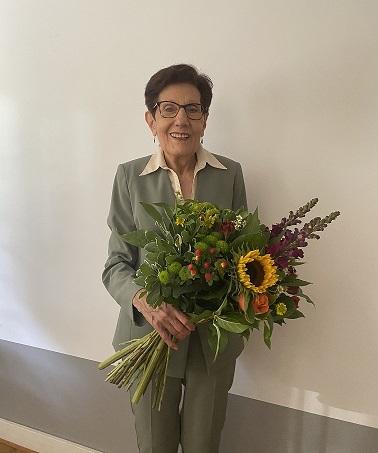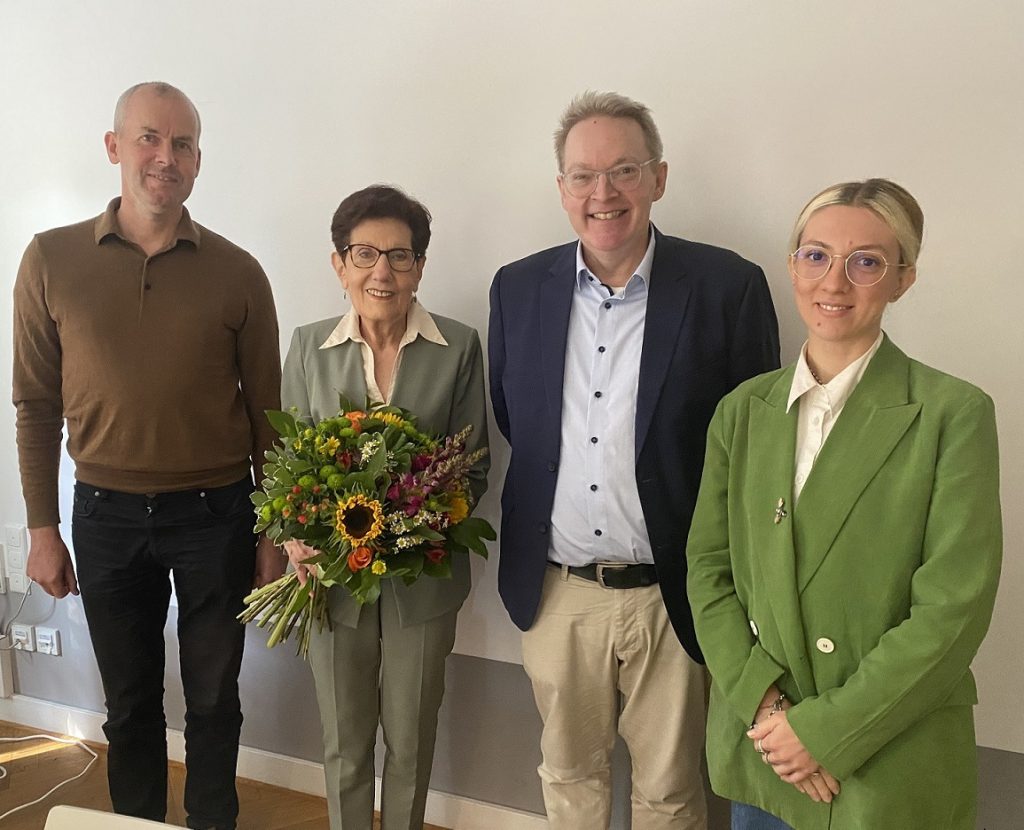The Institute for the History of Knowledge in the Ancient World warmly congratulates Sona C. Eypper who successfully defended her doctorate on September 18, 2024 and graduated with “magna cum laude”.

Sona C. Eypper studied Ancient History with a concentration on Ancient Mesopotamia under William A. Ward (1928-1996) at the American University of Beirut. Her MA thesis dealt with the chronology of Babylon during the early second millennium B.C. She came to Germany with a German Exchange Scholarship (DAAD) to study Assyriology at the Freie Universität Berlin under Franz Köcher, an Assyriologist and medical historian at the Institute for the History of Medicine.
Franz Köcher (1916-2002) started his research at the Freie Universität Berlin in 1963. His magnum opus, “Die Babylonisch-Assyrische Medizin in Texten und Untersuchungen” (BAM) is until today among the most important publications for the study of ancient Near Eastern medicine. Between 1963 and 1980, Köcher published six volumes in the BAM series and retired in 1983.
Having returned to the field after several years, Sona Eypper researched Mesopotamian medical texts dealing with conditions and diseases of the feet, under Prof. Markham J. Geller, her PhD supervisor, who has been investigating the practice of medicine and healing in Mesopotamia for decades and was at Freie Universität Berlin from 2010 until 2018. Markham J. Geller was on secondment from the University College London (UCL) to work in Berlin as a Professor for the History of Knowledge at the Topoi Cluster of Excellence. Prof. Geller also led an ERC advanced grant for “Babmed – Babylonian Medicine” (2012-2018), where Sona C. Eypper worked as a guest researcher and project advisor.

In her doctoral thesis, Sona Eypper investigates a particular group of Babylonian-Assyrian medical texts that deal with conditions which affect the lower extremities of the human anatomy. These conditions include not only locomotor syndromes, but also skin conditions (lesions) that appear on the legs and feet. The first two chapters of this study present fifty-two texts, mostly fragmentary, in transliteration and translation. In the lengthy third chapter, each condition is discussed and the recommended treatment procedures are analyzed. The underlying principle in Mesopotamian medicine can be best understood as a visually oriented medicine. The realization of this fact helps us to understand the various treatments.
Dr. des. Eypper is currently preparing her doctoral work for publication.